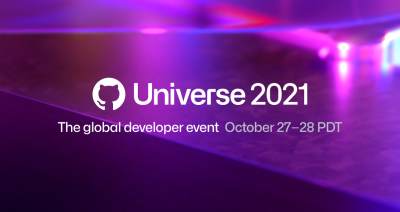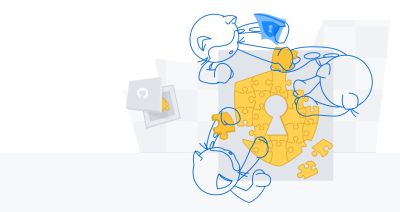
GitHub’s developer-first approach to content moderation
GitHub puts the needs of developers at the core of our content moderation policies. Learn more about our approach and how you can contribute.

GitHub puts the needs of developers at the core of our content moderation policies. Learn more about our approach and how you can contribute.

GitHub Enterprise Cloud administrators can now download and view the latest GitHub SOC 1, Type 2 and SOC 2, Type 2 compliance reports for 2021. These reports can be found…

All newly created GraphQL objects now have IDs that conform to a new format, which we refer to as “next IDs.” Learn how to migrate older IDs to the new format and why we’re making the change.

During Universe, we received a number of security questions ranging from our strategy to our advisories. Here’s what we’ve got planned!

You can now export your Advanced Security license data to review usage across your business. The CSV data can be downloaded at both enterprise and organization level, and contains: the…

The “Only notify requested team members” setting can now be enabled independently of “Enable auto assignment” in the Team’s code review settings. This is useful in scenarios where many users…

Here are a few ways our teams use GitHub Discussions internally to build community, simplify workflows, and get key insights into our work.

This latest release sees the introduction of a new role, a new webhook for GitHub Actions, and a bright edge to dark mode.

GitHub recently introduced the ability to set an expiration date when creating or regenerating a personal access token (PAT). For a PAT that is authorized to access an organization protected…

Users and organizations can now verify GitHub Pages domains to protect against takeover attacks. Learn more about verifying your custom domain for GitHub Pages For questions, visit the GitHub Pages…

Maintainers can now limit who can approve and request changes on pull requests. You can also close issues and block users via your phone.

Pull Request Merge Queue is now available in limited beta. Learn more about the feature and how to request early access. Why a merge queue? Maintaining high velocity and keeping…

GitHub Codespaces allows teams and organizations to spin-up developer environments directly from a browser or through Visual Studio Code, without the hassle of setting up a brand new environment tailored…

A command palette beta is now available for all users across github.com. Quickly navigate to your organizations and repositories, and use modes to find and jump-to pull requests, issues, projects,…

Ruby is the 10th most popular language within the open source community. To help more open source maintainers and organizations find potential vulnerabilities in their code, we’ve added Ruby support…

Since we introduced the new GitHub Issues earlier this year in a private beta, we’ve been working hard to expand access to all developers in order to make GitHub the…

Since last year’s GitHub Universe, we’ve shipped more than 20,000 improvements to GitHub for developers, open source communities, and enterprise teams. Here’s a comprehensive overview of what we’re announcing at Universe this week.

GitHub Enterprise Cloud customers participating in the audit log streaming public beta may now use an AWS S3 endpoint when configuring a stream. This will allow tools that support S3…

GitHub Actions can automate several common security and compliance tasks, even if your CI/CD pipeline is managed by another tool.

GitHub Marketplace just passed 10,000 published actions! Learn about contributing to this growing open source ecosystem.

Catch up on 44 ships, including a colorblind-accessible theme, a public README.md for organizations, and customization of code review settings.
Build what’s next on GitHub, the place for anyone from anywhere to build anything.
Catch up on the GitHub podcast, a show dedicated to the topics, trends, stories and culture in and around the open source developer community on GitHub.